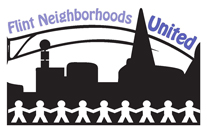LANSING, Mich. – The Michigan Department of Health and Human Services (MDHHS), Centers for Disease Control and Prevention (CDC), and Flint Community Resilience Group, Data & Gap Analysis Workgroup today announced the results of a community assessment that focused on behavioral health needs since the Flint water crisis.
Michigan requested the Community Assessment for Public Health Emergency Response, or CASPER, on behalf of the Flint Community Resilience Group, Data & Gap Analysis Workgroup, from the CDC to aid in recovery efforts. The CDC provided the technical expertise, study plan and data analysis of the CASPER, and the Flint Community Resilience Group, Data & Gap Analysis Workgroup, comprised of MDHHS, Genesee Health System, University of Michigan Flint, and community partners, implemented the face-to-face household surveys which were conducted in May.
The CASPER helped to establish a baseline in five major areas: self-reported household and individual behavioral health concerns for adults and children since the Flint Water Crisis; household access to behavioral health services; self-reported physical health concerns; water-related resource needs and barriers to resources; and effectiveness of communication with the community.
The majority of households in the assessment reported worsening of behavioral health concerns since the Flint Water Crisis:
- In households including any adult ages 21 or older, two thirds reported at least one adult had one or more new or worsening behavioral health concerns since October 2015.
- In households with one or more member younger than 21, slightly more than half reported at least one member younger than 21 had one or more new or worsening behavioral health concerns since October 2015.
- Examples of concerns that were inquired about include trouble concentrating, depressed mood, and anxiety or stress.
Although the assessment mainly focused on behavioral health, surveyors also asked a few questions about physical health. About half of household representatives reported experiencing some physical health concerns. The most common self-reported physical health concern was skin rash or irritation; other symptoms included fatigue, nausea, forgetfulness, and muscle aches or pains.
Additional findings showed that at the time of the assessment, 75 percent of households in the assessment used bottled water from water distribution sites. The CASPER also looked at the most common and most trusted forms of communication about the crisis. Households most commonly received information from television (76.6 percent) and the most trusted source of information was news media.
“We are committed to continuing our efforts to help residents connect with the behavioral and physical health resources that are right for them,” said Nick Lyon, director with the MDHHS. “With the right support, information, and collaboration, we can continue to improve the short and long-term health outcomes in Flint.”
“What we’ve learned over the years in emergency response and recovery is that all crises are unique yet have common elements – including increased behavioral health needs,” said Dr. Nicole Lurie, assistant secretary for preparedness and response with the U.S. Department of Health and Human Services, who is leading the federal government’s response to the Flint Water Crisis. “Behavioral health needs in the Flint water crisis were apparent when I arrived in Flint in January, and federal agencies have been working with the state and community to meet these needs. I commend the Michigan Department of Health and Human Services for recognizing the potential for ongoing behavioral health impacts and undertaking this assessment to help guide ongoing recovery efforts in Flint.”
The results of the CASPER are helping public health authorities guide the ongoing recovery efforts in Flint. In addition to the initial emergency response efforts such as providing the National Disaster Distress 24/7 Hotline and crisis counseling, the following actions have been taken to address the behavioral health needs emerging since the water crisis and supported by the CASPER results:
- Medicaid was expanded to bolster physical and behavioral health services for the citizens of Flint.
- Children’s behavioral health services were increased to provide prevention screening and early intervention for children and youth. Services such as infant mental health, homebased services, and family supports coordination are being offered.
- Head Start was expanded to provide an enriched environment to mitigate the effects.
- Behavioral health practitioners are being co-located with pediatricians and primary care providers to offer timely screening and behavioral health services, ultimately working to reduce issues related to transportation and increase the amount of services being provided.
- Primary Care providers are being trained on behavioral health screenings for children.
- Federal, state, and local partners are working together to ensure that residents’ experiences of trauma can be effectively addressed in clinical settings. Emerging evidence based strategies for integrating trauma informed care in behavioral health services are being reviewed to address the immediate and long term issues of trauma for children and adults.
- MDHHS received a half million dollar emergency response grant from the Substance Abuse and Mental Health Services Administration. The funding will be used to:
- Hire outreach workers from the Flint community to provide crisis services and support for underserved adults.
- Expand current behavioral health services to all affected adults in Flint.
- Educate Flint citizens about services and support available to them and where to go to receive those services. For example, by encouraging enrollment in the Medicaid waiver by visiting a local MDHHS office, www.michigan.gov/mibridges or by calling 1-855-789-5610.
- The City of Flint received a $4.8 million grant from SAMHSA to provide services and supports – including behavioral health and violence prevention programs – to youth and families who have experience trauma since the Flint Water Crisis.
Federal, state, and local partners will continue to provide behavioral health services to the Flint community and will utilize the findings of the Flint CASPER to support these efforts. To view the full assessment, visit http://www.michigan.gov/flintwater/0,6092,7-345-76930—,00.html. For more information about the resources available in Flint, visit michigan.gov/flintwater.




